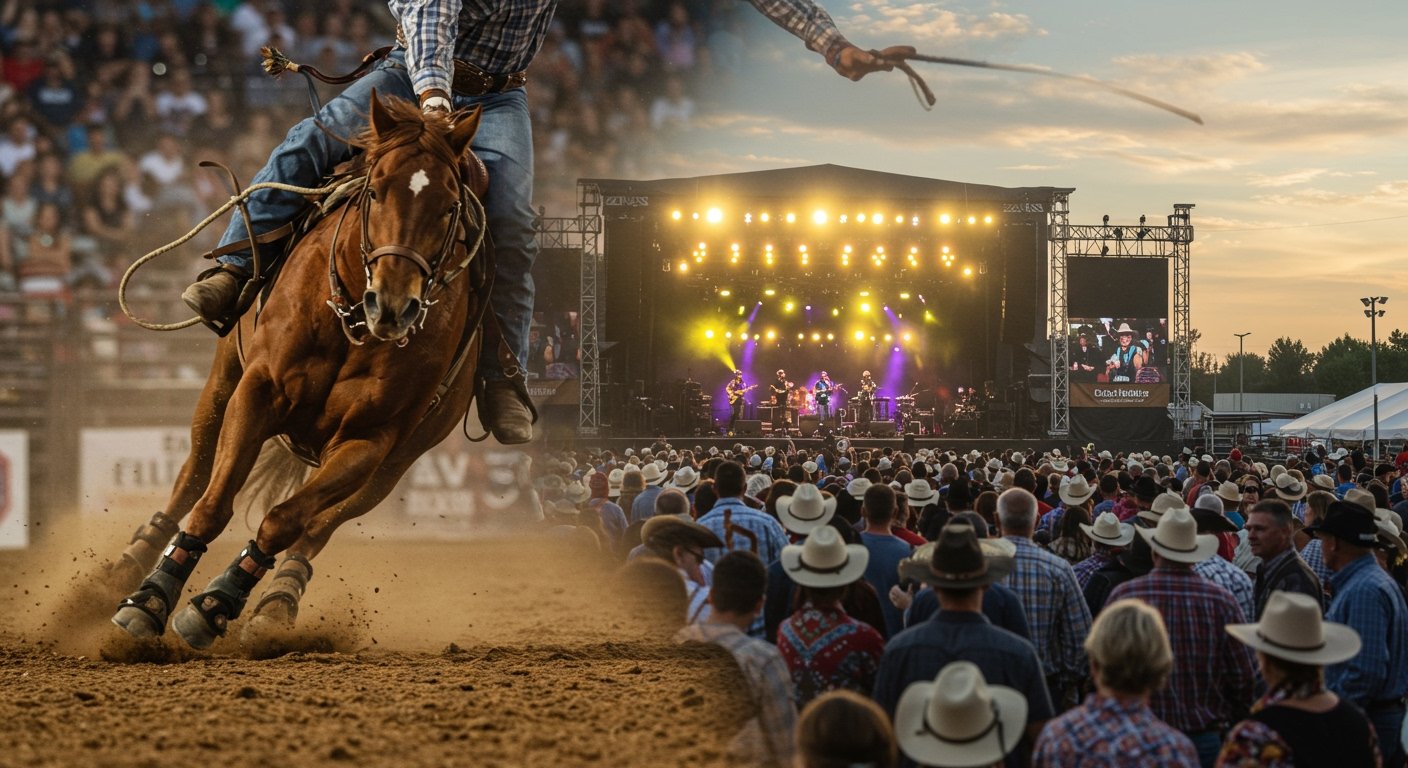Calgary, AB – The Calgary Stampede, an iconic annual celebration of Western heritage, rodeo, and community spirit, continued its dynamic run on Sunday, July 6, 2025, offering attendees a packed schedule ranging from high-stakes athletic competition to diverse musical performances and traditional political engagement.
While the rodeo arena captured attention with its display of grit and skill, the day’s events underscored the Stampede’s multifaceted nature, seamlessly blending cultural spectacle with political discourse and world-class entertainment.
A Day of Diverse Music Performances
Music remained a central attraction on July 6, with several notable artists gracing the Stampede stages. The day featured a curated selection of talent spanning various genres, ensuring there was a performance to suit every taste.
Among the anticipated acts was Jason Isbell and the 400 Unit. Known for his critically acclaimed songwriting and compelling live performances, Isbell’s appearance, backed by his renowned ensemble the 400 Unit, drew significant crowds. Their performance added a layer of sophisticated Americana to the day’s musical offerings.
Sharing the stage was Alberta artist Noeline Hofmann, whose rising profile has garnered increasing attention. Hofmann’s career received a significant boost when country superstar Zach Bryan discovered her work via YouTube. This discovery led to a high-profile collaboration, with Bryan recording the song “Purple Gas” with Hofmann for his widely successful 2024 album “The Great American Bar Scene”. Her performance at the Stampede showcased the growing impact of this collaboration on her trajectory.
Rounding out the day’s key music picks was the veteran American folk-punk band, the Violent Femmes. Known for their distinctive sound and enduring appeal, the band brought their unique energy to the festival. Their appearance in Calgary followed a recent engagement at the prestigious Montreal International Jazz Festival on Friday, July 4, 2025, highlighting their continued relevance on the international festival circuit.
Tough Choices in the Rodeo Arena
Beyond the stages, the heart-pounding action of the rodeo unfolded, presenting tough choices for rodeo athletes competing for coveted titles and prize money. The intense competition across events such as bareback riding, steer wrestling, team roping, saddle bronc riding, tie-down roping, barrel racing, and bull riding demands peak physical condition and mental fortitude.
Athletes face daily decisions that can impact their performance and season. These tough choices can range from managing injuries and deciding whether to compete through discomfort, to strategic planning regarding which events to enter and how to navigate the demanding schedule of professional rodeo. The Stampede, as a major stop on the circuit, amplifies this pressure, requiring competitors to be at their absolute best while making critical decisions under duestress and high stakes.
Politics and Pancakes: A Stampede Tradition
Adding a uniquely Canadian dimension to the festivities, the Stampede also served as its traditional informal political hub. The well-worn phrase “Politics and pancakes” aptly describes the scene, where politicians from municipal, provincial, and federal levels gather to mingle with constituents and fellow leaders.
These ubiquitous pancake breakfasts, a Stampede hallmark, provide a relaxed backdrop for politicians to connect directly with the public, discuss current issues, and engage in campaigning or relationship-building outside the formal settings of government. July 6 saw various political figures navigating these events, leveraging the Stampede’s vast public platform to gain visibility and gauge public sentiment, illustrating the festival’s role as a significant cultural and political touchstone in Western Canada.
Convergence of Culture and Competition
The events of July 6 underscored the Calgary Stampede’s success in bringing together seemingly disparate elements – the raw athleticism of rodeo, the diverse expressions of musical art, and the often-informal dynamics of Canadian politics. It is this convergence that defines the ten-day spectacle as more than just a fair, but a significant cultural event on the national stage.
As the Stampede progresses, attendees can anticipate more performances, more thrilling rodeo moments, and continued opportunities for community and political engagement, all set against the vibrant backdrop of Calgary’s most famous annual event.




